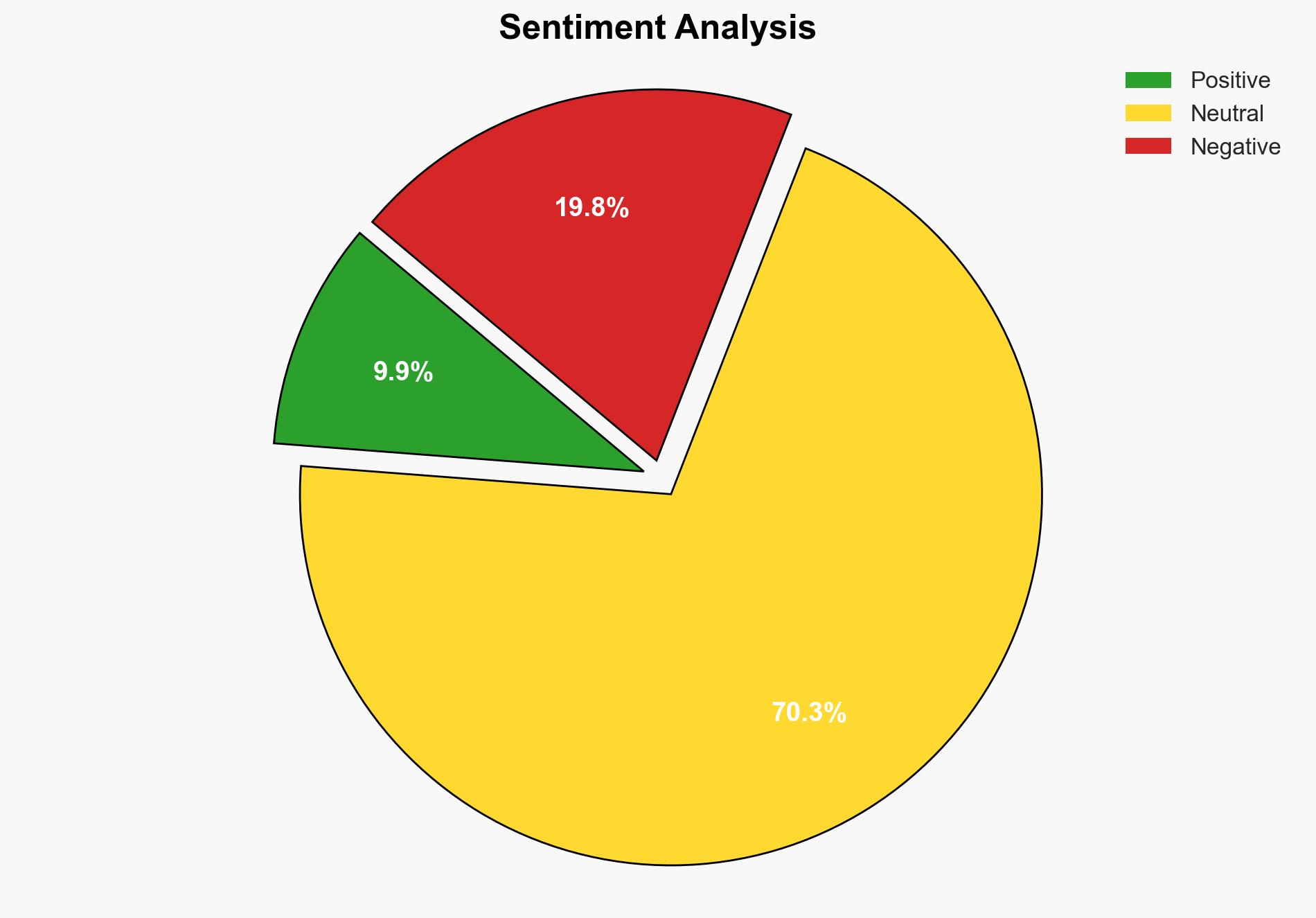US and Israel should hit Houthis but eviscerate Tehran – The Jerusalem Post
Published on: 2025-03-21
Intelligence Report: US and Israel should hit Houthis but eviscerate Tehran – The Jerusalem Post
1. BLUF (Bottom Line Up Front)
The strategic landscape in the Middle East is increasingly volatile, with significant threats posed by the Houthis and Iran. The US and Israel are urged to take decisive action against these entities to safeguard international shipping lanes and regional stability. The report highlights the necessity of holding Iran accountable for its proxy activities and nuclear ambitions, with recommendations for immediate and coordinated international response.
2. Detailed Analysis
The following structured analytic techniques have been applied for this analysis:
General Analysis
Recent months have seen increased aggression from the Houthis, impacting international shipping lanes in the Red Sea and Suez Canal. The lack of sufficient response has emboldened these actors. Iran’s support for the Houthis and its broader regional ambitions, including its nuclear program, pose a significant threat to regional and global stability. The narrative from Tehran, including rhetoric from key figures, underscores its revolutionary ambitions and hostility towards Israel and Western interests.
3. Implications and Strategic Risks
The strategic risks include potential disruptions to global trade routes, heightened military confrontations, and nuclear proliferation. Iran’s influence in the region, through entities like Hezbollah and its support for the Houthis, could destabilize neighboring countries and exacerbate existing conflicts. Economic interests, particularly in energy markets, are at risk due to potential conflicts and sanctions.
4. Recommendations and Outlook
Recommendations:
- Enhance military and diplomatic efforts to counter Houthi aggression and Iranian influence in the region.
- Strengthen international coalitions to impose stricter sanctions on Iran’s nuclear and ballistic missile programs.
- Invest in technological advancements to protect critical infrastructure and shipping lanes.
Outlook:
Best-case scenario: Coordinated international efforts lead to a de-escalation of hostilities and a rollback of Iran’s nuclear ambitions, stabilizing the region.
Worst-case scenario: Failure to act results in increased aggression from Iran and its proxies, leading to widespread conflict and economic disruption.
Most likely outcome: Continued tensions with periodic escalations, requiring ongoing international engagement and strategic interventions.
5. Key Individuals and Entities
The report mentions significant individuals and organizations, including Donald Trump, Ali Khamenei, and Mike Waltz. These figures are pivotal in shaping the narrative and strategic decisions related to the Middle East’s geopolitical dynamics.





